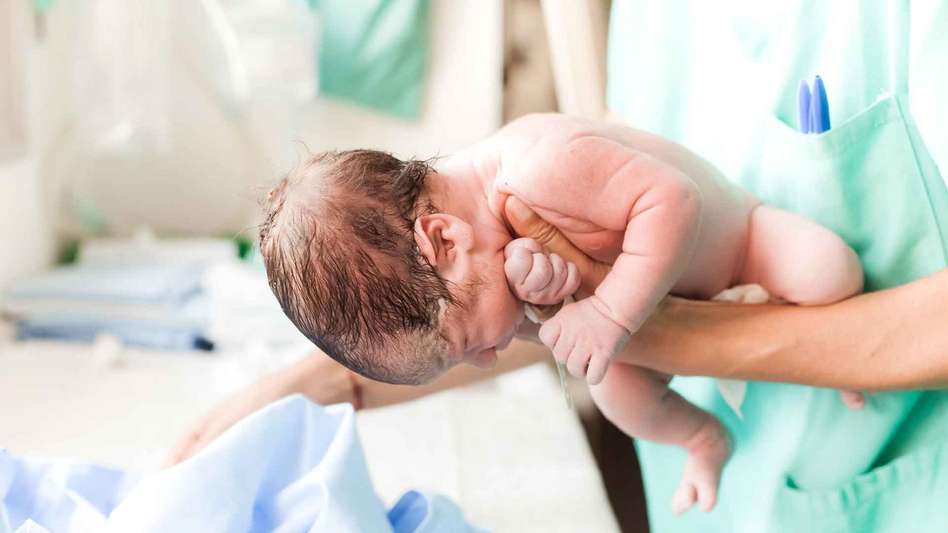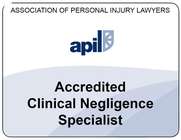Tees settles three maternal birth injury cases, securing compensation of £400,000 for clients

In the last twelve months, Janine Collier, Partner at Tees in Cambridge has settled three medical negligence cases concerning a failure to identify and repair perineal tears resulting in injuries to the anal sphincter complex following childbirth.
What is a perineal tear?
It is not uncommon to sustain a tear between the vagina and the anus during childbirth. First degree tears are so small and superficial (involving just the skin and the tissue surrounding the vagina) that few, if any, stitches are required. Sometimes, the tear extends further, into the muscles beneath the skin (a second degree tear) and this will need to be stitched and closed layer by layer. Around 4% of women suffer a more serious tear which extends to or through the rectum (third and fourth degree tears).
Why should perineal tears be repaired at the time of delivery?
Healthcare professionals generally accept that tears are most important to be identified and repaired at the time of delivery to reduce the risk of infection, recto-vaginal fistulae and various rectal symptomology, including faecal and flatus incontinence.
Obstetricians now undergo a rigorous training programme to minimise the chances of clinicians missing these tears after delivery; to ensure a good quality repair; and to maximise the chances of good continence following primary repair.
What are the consequences of missing a third or fourth degree tear at delivery?
Unfortunately, however, sometimes, these tears are still missed and notwithstanding a delayed repair (sometimes primary, sometimes secondary), the women suffer persistent and debilitating rectal symptomology which may include incontinence of flatus, faecal incontinence, passive soiling etc. Understandably, this has a significant effect on their lifestyle, their relationships with friends, family and Partners and, in some cases, their ability to work.
These women may be entitled to compensation to help them adapt to their situation; to fund future treatment; and to compensate them for any financial losses arising from their injuries.
How can we help you?
If you suffered a third or fourth degree tear; if this was not identified and repaired at the time of delivery; and if you suffer continuing problems as a consequence, please contact our Obstetric Anal Sphincter Injury expert, Janine Collier, for some initial advice. Janine is an expert in this field of medical negligence law. For an initial chat, you can call Janine on 01223 702303 or email janine.collier@teeslaw.com
Tees is proud to support The MASIC Foundation - a charity formed to support mothers with 3rd and 4th degree tears. Visit their website to find resources for support.
Free, confidential advice on medical negligence
Call for a FREE initial consultation on 0333 252 5363
Alternatively, come in for a free, confidential, no obligation chat, or fill out our enquiry form and we will let you know how we can help. We can also visit you at your home if you wish.
Our medical negligence lawyers are based in:
- Cambridgeshire: Cambridge
- Essex: Brentwood, Chelmsford and Saffron Walden
- Hertfordshire: Bishop's Stortford & Royston
But we can help you wherever you are in England and Wales.
Chat to the Author, Janine Collier
Executive Partner, Medical Negligence, Cambridge office
Meet Janine
- Areas of expertise
- Accreditations
- Testimonials
Legal 500 UK 2023
'Janine Collier has an amazing reputation and quite rightly, she very quickly spotted something that wasn’t the main focus of the case but is able to zoom out and look at everything that’s going on and spot things others wouldn’t spot. You can tell she really cares and is a very dedicated person who just wants to help. The team are all caring and efficient'
A
Cambridge
'A heartfelt thank you for all you have done in preparation for and during the settlement meeting, as well as for your unfailing support along the way, in and out of hours. It is undoubtedly due to your high professionalism if the outcome today has exceeded all expectations; it will be a huge help for us going forward and we will be forever grateful'
Chambers & Partners 2022
Cambridge
'Janine Collier is renowned for her handling of delay in diagnosis, obstetric injury and surgical negligence claims. She is at the top of her game and knows clinical negligence inside and out'
Susan Hickman
Cambridge
'We consider ourselves fortunate to have been recommended to Tees by the solicitor we initially approached. We did not realise it until the case was well established that the level of professional care we were receiving was exceptional and that the experience of the individuals and the contacts they have to assist in a very complex case was the best available. We are grateful that we received a satisfactory settlement as a result of their efforts under difficult circumstances and dealing with defendants that were obstructive and disorganised. By far the greatest benefit for us however is the fact that the victim, with assistance from highly skilled experts that we would not have known about otherwise, learned to walk short distances when all other medical opinion did not consider this possible. This was their greatest achievement which is well beyond the service we expected'
Legal 500 UK 2021
"Janine Collier, head of department, is a perspicacious and very able lawyer, certainly one of the best in the region and beyond, who believes in her team and in the work she does. A genuinely nice person who sees it as her clients’ right and her duty to achieve the best possible outcome for them. Janine delivers this time after time. She is an extremely intelligent and intuitive lawyer who has a genuine understanding of the difficulties and fears clients experience when living with an avoidable injury."
Legal 500 UK 2021
"Janine Collier is a really good solicitor – she really understands the medicine in clin neg cases and works well with the team, the clients and the experts to get excellent results in difficult cases."
Legal 500 UK 2021
"Janine Collier is exceptionally good at analysis, organisation and strategy."
Legal 500 UK 2021
"Janine Collier is a really good solicitor, she really understands the medicine in clinical negligence cases and works well with the team, the clients and the experts to get excellent results in difficult cases."
Legal 500 2021
"Janine Collier shows dedication to ensuring access to the highest level of experts on medical negligence cases. There is excellent consistent communication with experts throughout a lengthy case, creating a supportive working atmosphere and ensuring long-term engagement of expert. She has a very intelligent and insightful approach to learning from experts, enabling sharing of detailed specialist information and findings with confidence, and she is excellent in multi-professional meetings with solicitors and barristers, enhancing communication in exceptionally complex cases; very high level of sensitivity demonstrated towards the needs of client throughout the case, consistently focusing on the multifactorial needs of the client, over and above the monetary compensation."
Legal 500 UK 2021
"Janine Collier has been amazing to work with. She is always quick to respond to queries, always takes time to make sure we fully understand the process and supports us to make decisions, i.e. switching from Legal Aid to no-win no-fee, with well reasoned and researched information to support us."
Legal 500 UK 2021
‘It has always been a rewarding experience working with Janine Collier and I would commend her very highly to lead on medical negligence cases.‘
The Fisher family
Janine works with empathy, understanding and compassion. She handled our mother's inquest with skill and sensitivity and guided us expertly. She kept us informed continually via email and multiple meetings and phone calls. Janine completely took the sting and the stress out of our case.







